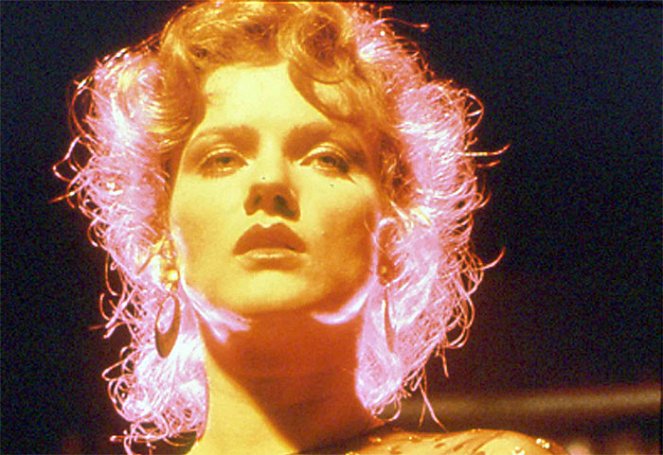Réalisation:
Rainer Werner FassbinderPhotographie:
Xaver SchwarzenbergerActeurs·trices:
Barbara Sukowa, Armin Mueller-Stahl, Mario Adorf, Matthias Fuchs, Helga Feddersen, Karin Baal, Ivan Desny, Elisabeth Volkmann, Hark Bohm (plus)VOD (1)
Résumés(1)
À la fin des années cinquante, dans une petite ville de Bavière, l'affrontement entre l'urbaniste Bohm et Schuckert, l'entrepreneur qui gère tous les chantiers de la ville, enrichi grâce au marché noir de l'après-guerre. Entre les deux hommes, la question du bien public, la morale de l'argent et du « boom économique » et... Lola, prostituée et strip-teaseuse à la Villa Fink. (Carlotta Films)
(plus)Critiques (2)
God. It really wasn't the fault of Heinrich Mann's novel that was remade 800 times. The final product, Lola, is so vague that even a brief glance at those emaciated whores photographed through pink filters suggests more than the whole supposedly refined socio-critical level.
()
Of all the films by German director R. W. Fassbinder, Lola is probably the most likable with its slightly comical exaggeration, and not least the cast, led by the charming Barbara Sukowa in the role of a luxury prostitute and Armin Mueller-Stahl as the characterful chief of the building authority. In most of his films, Fassbinder is left-wing, activist, and overly critical, but here he transforms his opposition to the establishment into clever satire that undermines the German economic miracle of the 1950s. Fassbinder subtly but effectively reminds us that the society of the 1950s is a direct continuation of Germany in the 1940s with its brown past. He also observes the corruption of both traditional and new elites and the fact that not everyone benefits equally from the economic rise. Those who have connections and often questionably accumulated capital get rich, while the rest are left with just the crumbs from the table. The character of the main protagonist, the idealistic Von Bohm, reminds us that almost everyone is corruptible, and it's just a matter of finding their price. Overall impression: 85%. Although Fassbinder tells the story of a specific brothel in a specific city, it is clear that he creates an association of the brothel as an embodiment of capitalist morality and the post-war German political system.
()


Annonces